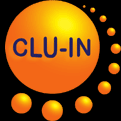Search Result
METHYLMERCURY UPTAKE AND DEGRADATION BY METHANOTROPHS
Lu, X., W. Gu, L. Zhao, M.F. Ul Haque, A.A. DiSpirito, J.D. Semrau, and B. Gu.
Science Advances 3(5):Paper e1700041(2017)
Filed Under: Research
Filed Under: Research
Methylmercury (MeHg) is a potent neurotoxin produced by certain anaerobic microorganisms in natural environments. Although numerous studies have characterized the basis of Hg methylation, no studies have examined MeHg degradation by methanotrophs, despite their ubiquitous presence in the environment. Researchers found that some methanotrophs, such as Methylosinus trichosporium OB3b, can take up and degrade MeHg rapidly, whereas others, such as Methylococcus capsulatus Bath, can take up but not degrade MeHg. Demethylation by M. trichosporium OB3b increased with increasing MeHg concentrations but was abolished in mutants deficient in the synthesis of methanobactin, a metal-binding compound used by some methanotrophs, such as M. trichosporium OB3b. Furthermore, addition of methanol (>5 mM) as a competing one-carbon substrate inhibits demethylation, suggesting that MeHg degradation by methanotrophs might involve an initial bonding of MeHg by methanobactin, followed by cleavage of the C-Hg bond in MeHg by the methanol dehydrogenase. This new demethylation pathway by methanotrophs indicates possible broader involvement of C-metabolizing aerobes in the degradation and cycling of toxic MeHg in the environment. http://advances.sciencemag.org/content/advances/3/5/e1700041.full.pdf
Science Advances 3(5):Paper e1700041(2017)
Filed Under: Research
Filed Under: Research
Methylmercury (MeHg) is a potent neurotoxin produced by certain anaerobic microorganisms in natural environments. Although numerous studies have characterized the basis of Hg methylation, no studies have examined MeHg degradation by methanotrophs, despite their ubiquitous presence in the environment. Researchers found that some methanotrophs, such as Methylosinus trichosporium OB3b, can take up and degrade MeHg rapidly, whereas others, such as Methylococcus capsulatus Bath, can take up but not degrade MeHg. Demethylation by M. trichosporium OB3b increased with increasing MeHg concentrations but was abolished in mutants deficient in the synthesis of methanobactin, a metal-binding compound used by some methanotrophs, such as M. trichosporium OB3b. Furthermore, addition of methanol (>5 mM) as a competing one-carbon substrate inhibits demethylation, suggesting that MeHg degradation by methanotrophs might involve an initial bonding of MeHg by methanobactin, followed by cleavage of the C-Hg bond in MeHg by the methanol dehydrogenase. This new demethylation pathway by methanotrophs indicates possible broader involvement of C-metabolizing aerobes in the degradation and cycling of toxic MeHg in the environment. http://advances.sciencemag.org/content/advances/3/5/e1700041.full.pdf
The Technology Innovation News Survey welcomes your comments and
suggestions, as well as information about errors for correction. Please
contact Michael Adam of the U.S. EPA Office of Superfund and Emergency Management at adam.michael@epa.gov or (703) 603-9915
with any comments, suggestions, or corrections.
Mention of non-EPA documents, presentations, or papers does not constitute a U.S. EPA endorsement of their contents, only an acknowledgment that they exist and may be relevant to the Technology Innovation News Survey audience.




